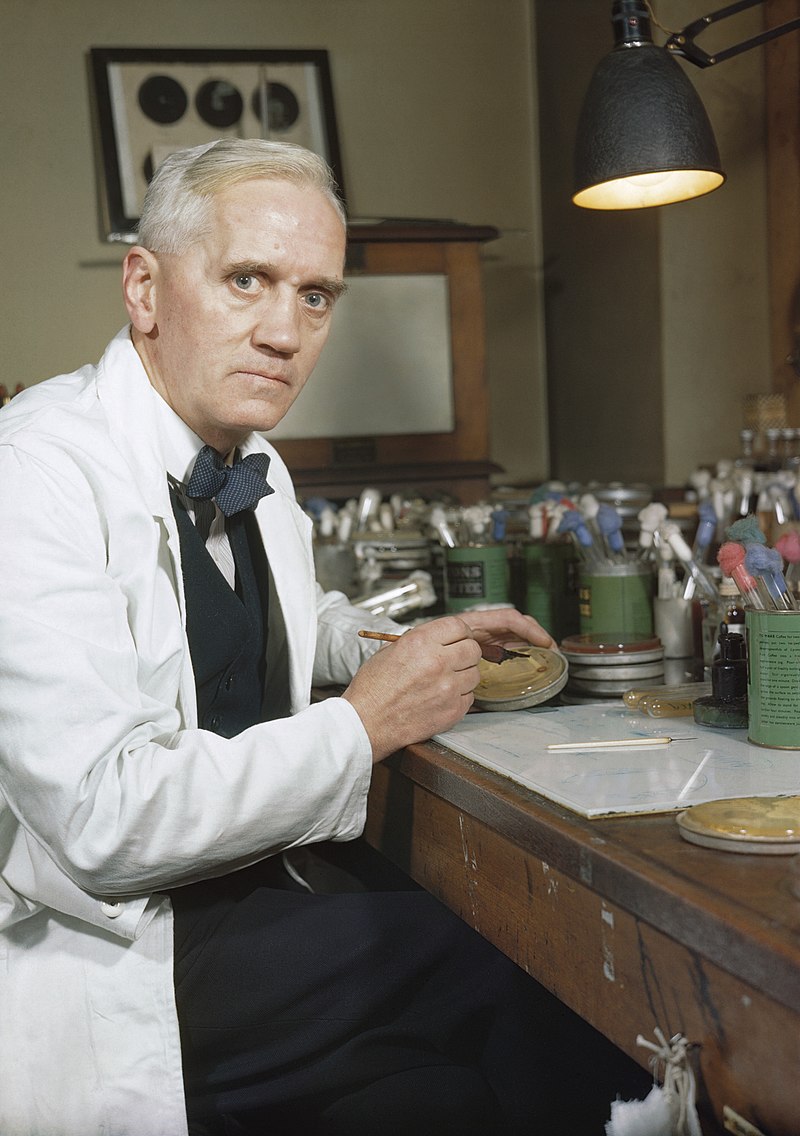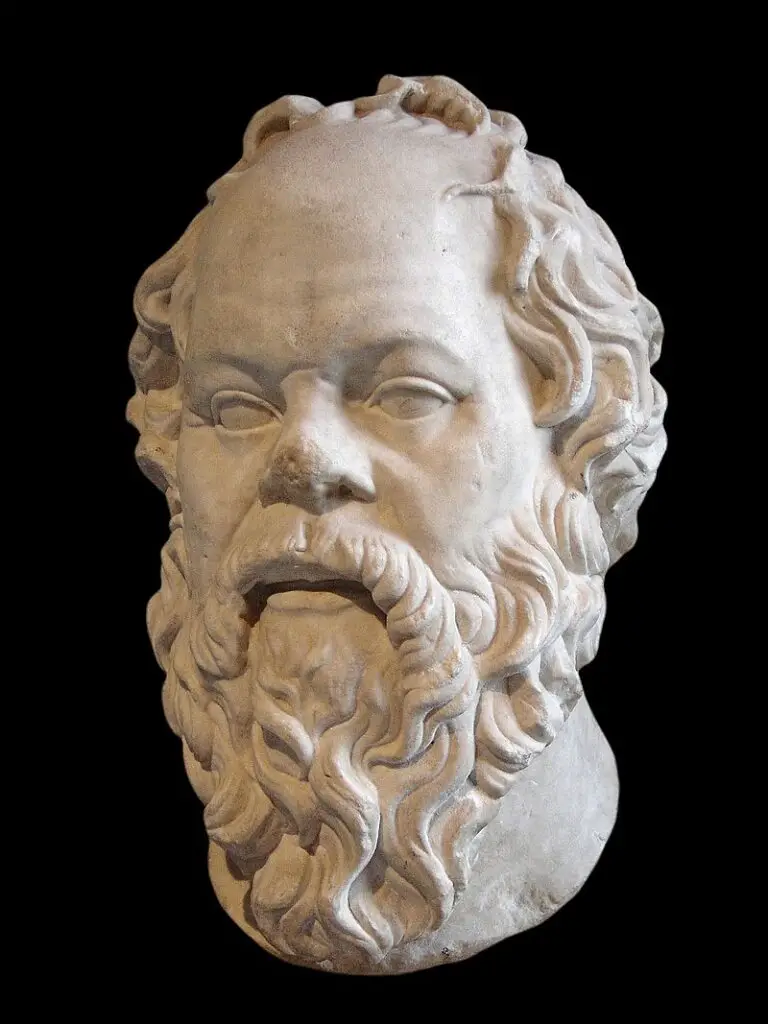Alexander Fleming (1881-1955) was a Scottish bacteriologist and pharmacologist best known for his discovery of the antibiotic substance penicillin. His groundbreaking work in the early 20th century revolutionized medicine by introducing the era of antibiotics, significantly impacting the treatment of bacterial infections. Fleming’s accidental discovery of penicillin in 1928 earned him the Nobel Prize in Physiology or Medicine in 1945, and his contributions continue to have a profound impact on modern medicine.
Early Life and Education
Alexander Fleming’s early life laid the foundation for his remarkable contributions to science. Born on August 6, 1881, in Lochfield, Scotland, he grew up in a family facing financial challenges. Despite the hardships, Fleming’s elder brother, Tom, played a crucial role in supporting his education.
Fleming began his formal education at the Darvel School, where he exhibited an early interest in the sciences. Later, he continued his education at Kilmarnock Academy. The nurturing of his academic interests by his family set the stage for his future pursuits in the field of medicine.
In 1895, at the age of 14, Fleming moved to London to work as a clerk in a shipping office. This experience, though unrelated to his medical aspirations, provided him with the means to pursue higher education. His determination to enter the medical field led him to enroll at St. Mary’s Hospital Medical School in 1901.
At St. Mary’s, Fleming’s passion for medicine flourished. He diligently pursued his studies, and in 1906, he graduated with a medical degree. This marked the completion of his formal education and the beginning of his journey into the medical profession.
Fleming’s postgraduate years were characterized by diverse experiences in different hospitals, where he gained practical insights into various medical disciplines. In 1908, he joined the Inoculation Department at St. Mary’s, focusing on bacteriology. This marked the beginning of his specialization in microbiology, a field that would define his illustrious career.
As World War I unfolded, Fleming’s commitment to serving his country led him to enlist in the Royal Army Medical Corps. He served as a captain, gaining firsthand experience in the medical challenges posed by war. This experience had a lasting impact on Fleming’s perspective and contributed to his later interest in infectious diseases.
After the war, Fleming returned to St. Mary’s and resumed his work in bacteriology. His dedication and expertise were recognized, leading to his appointment as a professor of bacteriology in 1928. This position provided him with the resources and environment to delve deeper into his research.
Little did Fleming know that a chance observation in his cluttered laboratory in 1928 would alter the course of medical history. This observation, involving the inhibitory effect of a mold (later identified as Penicillium notatum) on bacterial growth, laid the groundwork for the discovery of penicillin – an achievement that would define his legacy in the scientific community.
Scientific Contributions
Alexander Fleming’s scientific contributions are profound and far-reaching, with his groundbreaking discovery of penicillin standing as one of the most pivotal moments in medical history. This revelation opened the door to the era of antibiotics, transforming the treatment of bacterial infections and saving countless lives. Fleming’s scientific journey, however, extends beyond penicillin, encompassing significant work in bacteriology, immunology, and the broader field of microbiology.
The turning point in Fleming’s career occurred in 1928 when he made the accidental discovery of penicillin. While working at St. Mary’s Hospital in London, Fleming noticed that a mold, later identified as Penicillium notatum, had a remarkable inhibitory effect on the growth of bacteria. This chance observation marked the beginning of a revolutionary breakthrough in medicine.
In 1929, Fleming published his findings in the British Journal of Experimental Pathology, titled “On the Antibacterial Action of Cultures of a Penicillium, with Special Reference to Their Use in the Isolation of B. Influenzae.” In this paper, he described how the mold produced a substance that could kill a wide range of bacteria. Fleming named this substance “penicillin,” recognizing its potential for treating bacterial infections.
Despite the significance of his discovery, progress in penicillin research was initially slow. Fleming faced challenges in isolating and producing penicillin in sufficient quantities for therapeutic use. It wasn’t until the early 1940s, during World War II, that the full potential of penicillin as an antibiotic was realized. Collaborating with scientists Howard Florey and Ernst Boris Chain, Fleming’s work laid the foundation for the mass production of penicillin.
The impact of penicillin on medicine cannot be overstated. Before its discovery, bacterial infections posed significant threats with limited treatment options. Common ailments, such as pneumonia and bacterial sepsis, were often fatal. Penicillin, with its ability to combat a wide range of bacteria, revolutionized the field of medicine and became a cornerstone in the treatment of bacterial infections.
In recognition of their contributions to the development of penicillin, Fleming, Florey, and Chain were jointly awarded the Nobel Prize in Physiology or Medicine in 1945. The Nobel Committee acknowledged the trio’s “discovery of penicillin and its curative effect in various infectious diseases.”
Fleming’s work extended beyond penicillin to encompass broader contributions to microbiology. He investigated various aspects of bacterial behavior, including the phenomenon of bacterial resistance. Recognizing the potential for bacteria to develop resistance to antibiotics, Fleming cautioned against the indiscriminate use of these drugs, an insight that remains relevant today.
His research also delved into the interactions between host organisms and bacteria. Fleming made significant contributions to immunology, exploring the body’s natural defense mechanisms against bacterial infections. This holistic approach to understanding infectious diseases contributed to the development of strategies for both prevention and treatment.
Fleming’s scientific legacy includes advancements in vaccine development. He worked on vaccines for diseases such as pneumonia, and his research laid the groundwork for the broader field of vaccinology. The principles he established in understanding the immune response to infections continue to influence vaccine development strategies.
In addition to his laboratory work, Fleming was an advocate for scientific collaboration and knowledge sharing. He believed in the importance of open communication among scientists to accelerate progress. His collaborative efforts with Florey and Chain exemplify this spirit of cooperation, leading to the successful mass production of penicillin.
Throughout his career, Fleming held various positions, including the Director of the Wright-Fleming Institute at St. Mary’s Hospital, named in recognition of his contributions. In this role, he continued to influence and guide research in microbiology.
Fleming’s impact on medicine and microbiology extended to shaping medical ethics. He emphasized the responsibility of scientists and physicians in the ethical use of their discoveries. His advocacy for responsible scientific practices reflects a commitment to the well-being of humanity and the ethical considerations surrounding scientific advancements.
Beyond the laboratory, Fleming’s legacy lives on through the countless lives saved by antibiotics. The development of penicillin marked the beginning of a new era in medicine, where bacterial infections were no longer synonymous with high mortality rates. Fleming’s contributions not only transformed the medical landscape of his time but also laid the groundwork for subsequent advancements in antibiotic research.
Death and Legacy
Sir Alexander Fleming’s death on March 11, 1955, marked the end of a life that had profoundly influenced the course of medicine. His passing left a void in the scientific community, but his legacy endured, not only in the laboratory but in the hearts of those who recognized the transformative impact of his work.
Fleming’s death came after a lifetime dedicated to the pursuit of knowledge and the betterment of humanity through scientific discovery. Despite the challenges he faced in his early years and the financial constraints of his family, Fleming’s unwavering commitment to medicine and research propelled him to become one of the most influential figures in the history of science.
His groundbreaking discovery of penicillin in 1928 revolutionized the treatment of bacterial infections and ushered in the era of antibiotics. The impact of penicillin on medicine cannot be overstated; it saved countless lives and fundamentally changed the way infectious diseases were approached. Fleming’s accidental observation in his cluttered laboratory at St. Mary’s Hospital paved the way for a medical breakthrough that continues to shape healthcare practices worldwide.
Fleming’s contributions extended beyond penicillin to encompass a broader understanding of microbiology, bacteriology, and immunology. His work on bacterial behavior, the phenomenon of bacterial resistance, and vaccine development contributed to the holistic understanding of infectious diseases. Fleming’s insights into the body’s natural defense mechanisms against bacterial infections laid the groundwork for advancements in vaccine research.
In 1945, Fleming, along with Howard Florey and Ernst Boris Chain, was awarded the Nobel Prize in Physiology or Medicine for the discovery of penicillin. This recognition acknowledged not only the significance of their work but also the transformative impact it had on global healthcare. The Nobel Committee praised their “discovery of penicillin and its curative effect in various infectious diseases,” emphasizing the profound implications for medical science.
Fleming’s legacy is not confined to the laboratory; it extends to the ethical considerations surrounding scientific advancements. He advocated for responsible scientific practices and emphasized the importance of considering the ethical implications of research. Fleming’s commitment to the ethical use of scientific knowledge reflects a deep sense of responsibility toward humanity and the potential consequences of scientific discoveries.
The impact of Fleming’s work continues to resonate in the development of antibiotics and the fight against infectious diseases. His name is synonymous with the revolution in medicine that made once-lethal bacterial infections treatable. The mass production of penicillin during World War II showcased the practical application of his discovery, saving numerous lives and shaping the trajectory of medical care on a global scale.
Fleming’s influence also extends to the education and training of future generations of scientists. The Wright-Fleming Institute, named in his honor, serves as a testament to his dedication to advancing microbiological research. The institute has played a crucial role in fostering scientific inquiry and contributing to the ongoing exploration of infectious diseases.
Myths
While Sir Alexander Fleming is rightfully celebrated for his groundbreaking discovery of penicillin and his contributions to microbiology, several myths and misconceptions have emerged over time. It is essential to separate fact from fiction to appreciate the true extent of his achievements and legacy.
One common myth revolves around the notion that Fleming discovered penicillin by accident because he was a messy and disorganized scientist. While it is true that Fleming’s laboratory was not meticulously organized, the discovery of penicillin was not a result of chaos. In 1928, Fleming noticed the inhibitory effect of a mold, later identified as Penicillium notatum, on bacterial growth. His observation was a product of careful scientific inquiry, and he systematically pursued the identification and study of the substance responsible for this effect. The discovery was not a random event but rather a result of Fleming’s keen scientific observations and curiosity.
Another myth suggests that Fleming was dismissive of the potential of penicillin, and it was only through the efforts of other scientists like Howard Florey and Ernst Boris Chain that its significance was realized. While it is true that Florey and Chain played a crucial role in the mass production of penicillin, Fleming himself recognized the potential of his discovery. In his 1929 paper published in the British Journal of Experimental Pathology, Fleming described the antibacterial properties of penicillin and acknowledged its potential for therapeutic use. His early work laid the foundation for subsequent research, and collaboration with Florey and Chain further accelerated the development of penicillin as a widely used antibiotic.
There is also a misconception that Fleming received little recognition for his discovery during his lifetime. In reality, Fleming received recognition and honors for his work. In addition to being knighted in 1944, he, along with Florey and Chain, was awarded the Nobel Prize in Physiology or Medicine in 1945 for the discovery of penicillin. The Nobel Committee specifically highlighted their “discovery of penicillin and its curative effect in various infectious diseases.” Fleming’s contributions were widely acknowledged, and he became a well-respected figure in the scientific community.
Another myth suggests that penicillin was immediately embraced and widely used after its discovery. In reality, the mass production and widespread use of penicillin took time to materialize. During World War II, the urgent need for effective antibiotics propelled the large-scale production of penicillin, turning it into a crucial tool for treating bacterial infections. However, challenges in production and distribution persisted, and it wasn’t until the post-war era that penicillin became widely available for medical use.
Fleming is sometimes erroneously credited with the invention of antibiotics. While he discovered penicillin, the term “antibiotic” was coined later by Sir Howard Florey. Antibiotics, as a class of substances that kill or inhibit the growth of bacteria, include various compounds beyond penicillin. Fleming’s work laid the foundation for the development of antibiotics, but the field expanded with the discovery of other antimicrobial agents.










